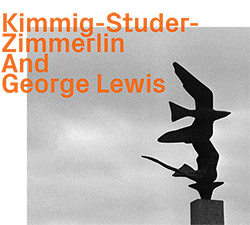
The innovative string trio of Daniel Studer on double bass, Harald Kimmig on violin, and Alfred Zimmerlin on cello, develop focused environments of timbre, texture, dynamic and space, seemingly abstract yet incredibly concentrative and virtuosic interaction, here joined by Chicago trombonist and electronics artist George Lewis adding a 4th profound layer to their incredible conversation.
In Stock
Quantity in Basket: None
Log In to use our Wish List
Shipping Weight: 3.00 units
EU & UK Customers:
Discogs.com can handle your VAT payments
So please order through Discogs
Sample The Album:
Daniel Studer-double bass
George Lewis-trombone, live electronics
Harald Kimmig-violin
Alfred Zimmerlin-cello
Click an artist name above to see in-stock items for that artist.
UPC: 752156101024
Label: ezz-thetics by Hat Hut Records Ltd
Catalog ID: ezz-thetics 1010
Squidco Product Code: 28280
Format: CD
Condition: Sale (New)
Released: 2019
Country: Switzerland
Packaging: Cardboard Gatefold
Recorded live at Kunstraum Walcheturm, in Zurich, Switzerland, on April 8th, 2018, by Mortiz Wtter.
"When the British poet Samuel Taylor Coleridge offered the term "suspension of disbelief" in 1817,he was proposing that the reader of literature might find an aesthetic satisfaction from an experience that exceeded the commonly-held boundaries of logic, convention, or assumed reality by freely accepting its unfamiliar, disconcerting premise and/or unorthodox, otherwise inconceivable details. This state of mind suggests a recognition of, and participation in, the moment of awareness, thereby intensifying the specific nature of the experience, and embracing the unpredictability and idealism of the new - and with it evolved the aura of abstraction, ultimately leading to the adventures of Modernism in all of the arts, soon to come.
The act of improvisation was, no doubt, an important element in the early 20th century rise of Modernism, especially as initiating and energizing impulse in those most extravagant experiments - the brilliantly acoherent (a description coined by critic Richard Kostelanetz as a literary equivalent to atonality in music) poems of Gertrude Stein, the visual juxtapositions in Kurt Schwitters' collages, the absurdist theatrical hijinks of the Dadaists. Yet in music, improvisation lagged behind; consider, the tectonic shifts in tonality from Schönberg and, moreso, Webern came attached to predetermined systems, and, not long thereafter, the system-rejecting indeterminate, chance operations of John Cage were intentionally anti-improvisatory. Flamboyant instrumental improvisations in India and the Middle East were dependent upon rigid rhythmic sequences. Even in jazz of the time, the improvisational solos that defined the music were devised from a disciplined song structure.
Jump-cut to today, and the music on this disc. The trio of Harald Kimmig, Daniel Studer, and Alfred Zimmerlin creates abstract soundscapes, with freely improvised materials, without the distinction of recognizable melodies or the foundation of organized rhythm or harmony. Though individually they have frequently performed with improvisers of varying jazz experiences and techniques - including Cecil Taylor, Steve Lacy, Tony Oxley, John Tchicai, John Butcher, and Evan Parker (Zimmerlin, additionally, is a composer whose works have been performed by the Arditti Quartet, among other groups) - this is not Free Jazz, which over the course of its history has developed certain styles, directions, and concepts that have codified at least some of its methods. Their inspiration as a trio, reminiscent of the still-often-startling wonders of Stein and Schwitters, enhances what seems on the surface to be disorganization into a radical sense of coherent perception - not simply reorganizing familiar elements, but using the essence of sound (timbres, textures, dynamics, space, and silence) to uncover music hidden in the cracks of experience, improvisation as a microcosm of productive activity. Their music follows Aristotle's dictum, that "Art in a sense completes what Nature is unable to finish."
Inviting the multifaceted George Lewis to collaborate with them allows the trio to expand their perspective without modifying or compromising it. His expansive résumé is, or should be, well-known, documenting his creativity in jazz, Free Jazz, non-idiomatic improvisation, and electronic programming and composing. In this situation, his subtle electronics color the music as an organic entity; it is often difficult to isolate the electronic timbres from the extended string techniques. His trombone, however, is an intensifying agent in the mix, provocatively distorting the misconception of the trio as limited to "improvisatory chamber music." On "Tactus and Tatum," for example, his initial pungent forcefulness matches the percussive attack of the strings, but quickly morphs into mumbling and vocalized breath, swallowed up by the strings' passion, gradually abated. Elsewhere, when less aggressive, the trombone blends into arco passages with a hazy chiaroscuro - the drama of the drop in dynamics and instrumental shading during "Very nice" is worthy of a late Turner water-color seascape.
Constructed from four individual simultaneous viewpoints (Zimmerlin has called it "collective mobile forms," alluding to Calder mobiles in which the relationship between the components, and thus the visual effect, is constantly changing), there is nonetheless a palpable sense of ensemble throughout the proceedings, based upon the immediacy of awareness, of meaning projected by necessity. Intent on disrupting preconceptions, the participants imply harmony with interactive instrumental gestures, dissolve rhythm into avenues of ambiguity, reveal character with intuition and nuance, existing continually only in and of the moment, exploring the sensibility of an eternal present. Believe it or not."-Art Lange, from the liner notes

The Squid's Ear!
Artist Biographies
• Show Bio for Daniel Studer "Daniel Studer was born in Zürich in 1961, lived and worked in Rome from 1981 to 1995, is now living with his family in Zurich.Master of arts in Music Pedagogy, guest composer at the Elektronisches Studio in Basel, studied composition with Johannes Schöllhorn.2010 award from the city of Zurich. His focus lies on improvisation and mixed forms of improvisation and composition. He participated in various projects involving space - and projects with live electronics; further fields of interest are music and language, music and dance, music and video poetry. The constant exploration of his instrument has led to performances as a soloist, too.For years he has been working with Peter K Frey, Mischa Käser, Katharina Klement, Giancarlo Schiaffini, Dieter Ulrich and Alfred Zimmerlin.Presently he is part of the Kontrabassduo Studer-Frey, Kimmig-Studer-Zimmerlin, III-VII-XII (with Mischa Käser and Urs Haenggli) and the trio Gabriela Friedli Trio. Concerts and radio recordings in Europe, Japan and USA. Among others he played with Lester Bowie, Jacques Demierre, Michel Doneda, Paolo Fresu, Gerry Hemingway, Steve Grossmann, Barney Kessel, Hans Koch, Riccardo Lay, Joëlle Léandre, Magda Mayas, Mike Melillo, Evan Parker, Antonello Salis, Irene Schweizer, Tony Scott, Co Streiff, Sebi Tramontana, Massimo Urbani, Urs Voerkel, Bobby Watson and many others. Records with the Kontrabassduo Studer-Frey, Kimmig-Studer-Zimmerlin, Giancarlo Schiaffini Quintet, Gabriela Friedli Trio, Solo, In Transit, Eichenbergers Domino, Day & Taxi, Käppeli-Lüscher-Studer, Streichtrio Coen-Penazzi-Studer on labels as Intakt,Unit Records, EMANEM, Konnex, Percaso, Creative Sources, Edition RZ. Festivals: Controindicazioni Roma, Le Mans Jazz Festival, Südtirol Jazz Festival Bozen, Clusone Jazz, Ulrichsberger Kaleidophon, Unerhört! Zürcher Jazzfestival, Willisau Jazz Festival, Zoom in Bern, Schaffhauser Jazzfestival, Limmitantiones, Romaeuropa, Zürcher Theaterspektakel, World New Music Days, Honmoku Jazz Festival Yokohama, Jazz and more München, Siena Jazz, Progetto Musica Roma He has been teaching improvisation at different music schools so at the Bern University of the Arts since 2006." ^ Hide Bio for Daniel Studer • Show Bio for George Lewis "George E. Lewis is the Edwin H. Case Professor of American Music at Columbia University. A 2015 Fellow of the American Academy of Arts and Sciences and a Corresponding Fellow of the British Academy, Lewis has received a MacArthur Fellowship (2002), a Guggenheim Fellowship (2015), a United States Artists Walker Fellowship (2011), an Alpert Award in the Arts (1999), and fellowships from the National Endowment for the Arts. In 2015, Lewis received the degree of Doctor of Music (DMus, honoris causa) from the University of Edinburgh. A member of the Association for the Advancement of Creative Musicians (AACM) since 1971, Lewis's work in electronic and computer music, computer-based multimedia installations, and notated and improvisative forms is documented on more than 140 recordings. His work has been presented by the BBC Scottish Symphony Orchestra, London Philharmonia Orchestra, Radio-Sinfonieorchester Stuttgart, Boston Modern Orchestra Project, Talea Ensemble, Dinosaur Annex, Ensemble Pamplemousse, Wet Ink, Ensemble Erik Satie, Eco Ensemble, and others, with commissions from American Composers Orchestra, International Contemporary Ensemble, Harvestworks, Ensemble Either/Or, Orkestra Futura, Turning Point Ensemble, San Francisco Contemporary Music Players, 2010 Vancouver Cultural Olympiad, IRCAM, Glasgow Improvisers Orchestra, and others. Lewis has served as Ernest Bloch Visiting Professor of Music, University of California, Berkeley; Paul Fromm Composer in Residence, American Academy in Rome; Resident Scholar, Center for Disciplinary Innovation, University of Chicago; and CAC Fitt Artist In Residence, Brown University. Lewis received the 2012 SEAMUS Award from the Society for Electro-Acoustic Music in the United States, and his book, A Power Stronger Than Itself: The AACM and American Experimental Music (University of Chicago Press, 2008) received the American Book Award and the American Musicological Society's Music in American Culture Award. Lewis is co-editor of the two-volume Oxford Handbook of Critical Improvisation Studies (2016), and his opera Afterword, commissioned by the Gray Center for Arts and Inquiry at the University of Chicago, premiered at the Museum of Contemporary Art Chicago in October 2015 and has been performed in the United States, United Kingdom, and the Czech Republic. Professor Lewis came to Columbia in 2004, having previously taught at the University of California, San Diego, Mills College, the School of the Art Institute of Chicago, the Koninklijke Conservatorium Den Haag, and Simon Fraser University's Contemporary Arts Summer Institute. Lewis studied composition with Muhal Richard Abrams at the AACM School of Music, and trombone with Dean Hey." ^ Hide Bio for George Lewis • Show Bio for Harald Kimmig "Harald Kimmig (born October 9, 1956 in Offenburg ) is a German violinist of free improvisational music and composer. Kimmig had violin lessons from 1966 to 1974, and from 1975 to 1982 he studied philosophy, sociology and art history. He took classes at Leszek Zadlo, Muneer Abdul Fataah, John Tchicai and Cecil Taylor. From 1984 he was active as a professional musician, initially with soloists and as a member of the First Improvising String Orchestra. He played in the trio with Georg Wolf and Lukas Lindenmaier (CD rif-rif 1990) and is co-leader of F-Orkestra, who worked with musicians such as Buddy Collette or Peter Kowald. He also played with the ensemble of Cecil Taylor (CDs "Legba Crossing", "Corona"), John Tchicai, Vladimir Chekassin, Doug Hammond, Lee Konitz, Tony Oxley, Gabriele Hasler, Sirone and Jrgen Wuchner. He works in the trio with Carl Ludwig Hbsch and L Quan Ninh. He is also a member of the ensembles of Angelika Sheridan, Graldine Keller and Hideto Heshiki. Together with Norbert Rodenkirchen he composed the Aura Christinae in 2004, which repeatedly performed in Stommeln (u. A. With Maria Jonas and Albrecht Maurer ). Kimmig also writes string quartets and major orchestral works ('The Course of Light and Darkness', Oratorio, 1999) as well as film music." ^ Hide Bio for Harald Kimmig • Show Bio for Alfred Zimmerlin "Alfred Zimmerlin was born 1955. He studied musicology and ethnomusicology at Zurich University under the tutelage of Kurt von Fischer und Wolfgang Laade, music theory under the tutelage of Peter Benary, and composition under the tutelage of Hans Wüthrich and Hans Ulrich Lehmann. He has taken an active part in the "Werkstatt für improvisierte Musik" (WIM, Workshop for Improvised Music) Zurich since 1980. Alfred Zimmerlin's ample oeuvre comprises pieces for piano, chamber music (with and without live-electronics), vocal music, orchestral music, music for theatre, and works for radio and film. The most important are: "Gezeiten der Zeit" (for string orchestra), "Cueillis par la mémoire des voûtes" (saxophone quartet and string orchestra), "Euridice singt" ( a chamber opera), three string quartets, "Neidhardlieder" (for soprano and four Renaissance recorders), the "Cembalo-Buch", "In Bewegung (Nature Morte au Rideau)" (for piano, string orchestra and soundtrack), "Weisse Bewegung" (for violoncello , piano, and percussion), Quintet for clarinet and string quartet, or "Zerstreut in Arbeit mit Wörtern" (for soprano, piano, and soundtrack). As an improvising musician and cellist, Alfred Zimmerlin has taken part in various formations in Europe and the US. From 1983 to 2009 he has been active member of KARL ein KARL, improvising and composing in cooperation with Peter K Frey and Michel Seigner, the distinctive feature of this trio being the fact that all compositional decisions are being made and accounted for collectively. Alfred Zimmerlin's work as improvising musician as well as the works of KARL ein KARL are available on numerous recordings." ^ Hide Bio for Alfred Zimmerlin
3/24/2025
Have a better biography or biography source? Please Contact Us so that we can update this biography.
3/24/2025
Have a better biography or biography source? Please Contact Us so that we can update this biography.
3/24/2025
Have a better biography or biography source? Please Contact Us so that we can update this biography.
3/24/2025
Have a better biography or biography source? Please Contact Us so that we can update this biography.
Track Listing:
1. Very Nice 19:03
2. Seven Colors And Number Ten 12:21
3. Night Walk 12:03
4. Natura Morta 5:53
5. Tactus And Tatum 6:22
Hat Art
Improvised Music
Jazz
Free Improvisation
European Improvisation, Composition and Experimental Forms
Saxophone & Drummer / Percussionist Duos
Duo Recordings
Hat Hut Masters Sale
Search for other titles on the label:
ezz-thetics by Hat Hut Records Ltd.

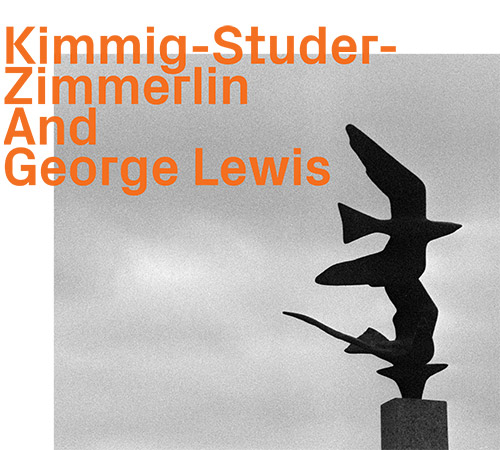
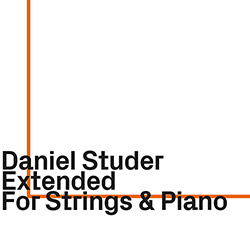



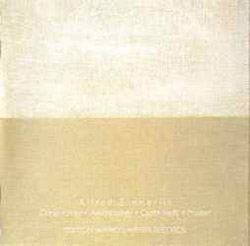
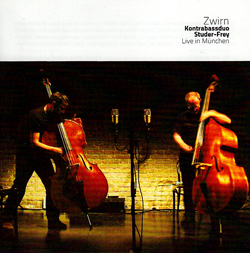
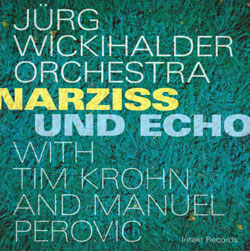
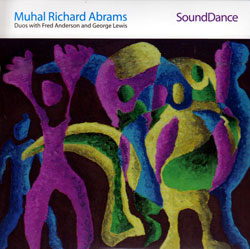
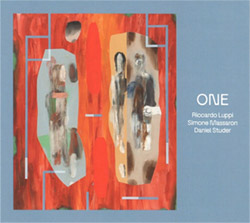
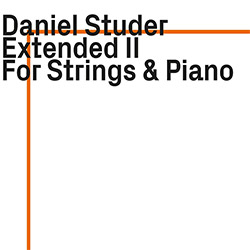
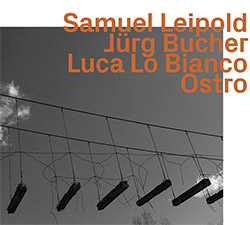
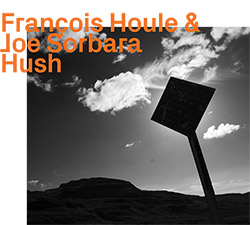
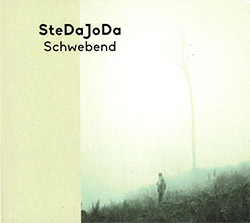
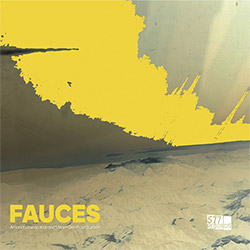

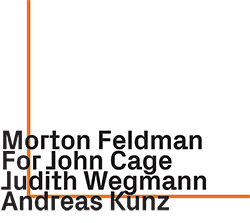


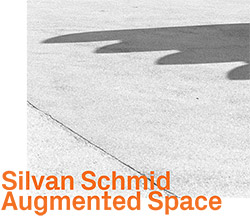
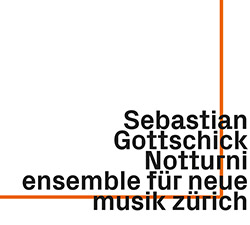
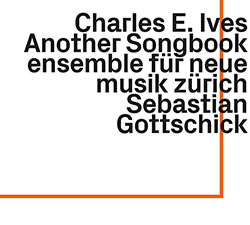


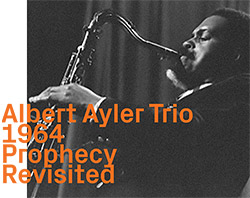






![Ackerley / Prymek / Turner: All Hope With Sleeping Minds [CASSETTE]](https://www.teuthida.com/productImages/misc4/35950.jpg)
![Myers, David Lee : Tin Drop Tear [BOOK w/ DOWNLOAD]](https://www.teuthida.com/productImages/misc4/36030.jpg)



![Schindler, Udo / Sandy Ewen / Damon Smith: Munich Sound Studies Vols. 4, 5 & 6 [3 CDs]](https://www.teuthida.com/productImages/misc4/35966.jpg)






![Turbulence Orchestra & Sub-Units: Smear Out the Difficulties (Double Live) [2 CDs]](https://www.teuthida.com/productImages/misc4/36048.jpg)
![Perelman, Ivo / Tyshawn Sorey: Paralell Aesthetics [2 CDs]](https://www.teuthida.com/productImages/misc4/35871.jpg)


![Sjostrom, Harri: SoundScapes #4 Festival Berlin 2023 [3 CDs]](https://www.teuthida.com/productImages/misc4/35874.jpg)

![Musicworks Magazine: #150 Winter 2024/25 [MAGAZINE + CD]](https://www.teuthida.com/productImages/misc4/36035.jpg)





![Glenn, Jordan: Flustered [CASSETTE]](https://www.teuthida.com/productImages/misc4/35948.jpg)


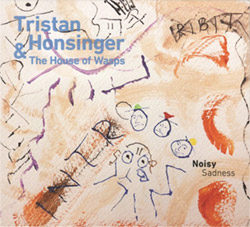
![Lindorff-Ellery, Evan: Church Recordings from Monhegan [CASSETTE]](https://www.teuthida.com/productImages/misc4/35949.jpg)
![Schindler, Udo / Werner Dafeldecker / Gunnar Geisse: Travelling Sound Images - Cognitive Transfers [Trio]](https://www.teuthida.com/productImages/misc4/35767.jpg)

![Egberth, Dennis: The Dennis Egberth Dynasty [VINYL]](https://www.teuthida.com/productImages/misc4/35549.jpg)


![Schindler, Udo / Rieko Okuda / Eric Zwang Eriksson: Disturbed Terrains [2 CDs]](https://www.teuthida.com/productImages/misc4/35330.jpg)
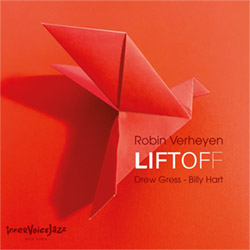
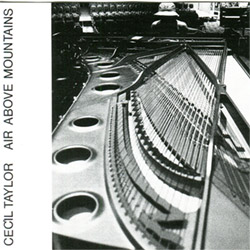






![Wolf Eyes / Anthony Braxton: Live At Pioneer Works, 26 October 2023 [VINYL]](https://www.teuthida.com/productImages/misc4/35839.jpg)




![Olencki, Weston : Pearls Ground Down To Powder [VINYL]](https://www.teuthida.com/productImages/misc4/35956.jpg)
![Myers, David Lee: Oculus [2CDs]](https://www.teuthida.com/productImages/misc4/35857.jpg)


![dustsceawung: dustsceawung [CASSETTE w/ Download]](https://www.teuthida.com/productImages/misc4/35753.jpg)




![Halls of the Machine: Atmospheres For Lovers And Sleepers [CASSETTE w/ DOWNLOAD]](https://www.teuthida.com/productImages/misc4/35806.jpg)



![AHC (Alexander Cooper): Lase [2 CDs]](https://www.teuthida.com/productImages/misc4/35754.jpg)



![Fagaschinski, Kai / Yan Jun : Graveyard Processions [VINYL w/ DOWNLOAD]](https://www.teuthida.com/productImages/misc4/35474.jpg)
![Brant, Cody / Carl Kruger: Smoke Detail [CASSETTE w/ DOWNLOAD]](https://www.teuthida.com/productImages/misc4/35551.jpg)







![Zorn, John / JACK Quartet: The Complete String Quartets [2 CDs]](https://www.teuthida.com/productImages/misc4/35609.jpg)

![Lonsdale, Eden: Dawnings [2 CDs]](https://www.teuthida.com/productImages/misc4/35480.jpg)







![Sanna, Claudio: Compositori Sardi Contemporanei II [2 CDs]](https://www.teuthida.com/productImages/misc4/35317.jpg)







![Zurria, Manuel: Fame di Vento [3 CDs]](https://www.teuthida.com/productImages/misc4/35167.jpg)

![Granberg, Magnus / Nattens Inbrott / Skogen: Holde Traume, Kehret Wieder! [2 CDs]](https://www.teuthida.com/productImages/misc4/35038.jpg)

![Electric Bird Noise / Derek Roddy: 8-10-22 [CD EP]](https://www.teuthida.com/productImages/misc4/35970.jpg)








![Elephant9 : Mythical River [VINYL]](https://www.teuthida.com/productImages/misc4/34624.jpg)



![Elephant9 with Terje Rypdal: Catching Fire [VINYL 2 LPs]](https://www.teuthida.com/productImages/misc4/35355.jpg)
![Deerlady (Obomsawin, Mali / Magdalena Abrego): Greatest Hits [VINYL]](https://www.teuthida.com/productImages/misc4/34876.jpg)







![Surplus 1980: Illusion of Consistency [CD]](https://www.teuthida.com/productImages/misc4/35069.jpg)
![Staiano, Moe: Away Towards the Light [VINYL + DOWNLOAD]](https://www.teuthida.com/productImages/misc4/35037.jpg)



![Caveira (Gomes / Sousa / Abras / Ferrandini): Ficar Vivo [VINYL]](https://www.teuthida.com/productImages/misc4/34643.jpg)
![Coley, Byron: Dating Tips for Touring Bands [VINYL]](https://www.teuthida.com/productImages/misc4/17906.jpg)

![Lost Kisses: My Life is Sad & Funny [DVD]](https://www.teuthida.com/productImages/misc4/lostKissesDVD.jpg)